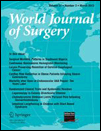Qualitative Analysis of the Perspectives of Volunteer Reconstructive Surgeons on Participation in Task-Shifting Programs for Surgical-Capacity Building in Low-Resource Countries
Abstract
Background
Experts agree that the global burden of untreated surgical disease is disproportionately borne by the world’s poorest. This is partly because of a severe shortage of surgical care providers. Several experts have emphasized the need to research solutions for surgical-capacity building in developing countries. Volunteer surgeons already contribute significantly to directly tackling surgical disease burden in developing countries. We qualitatively evaluated their interest in participating in task-shifting programs as a surgical capacity-building strategy.
Methods
We conducted semi-structured interviews with surgeons familiar with delivery of surgical care in developing countries through their extensive volunteer experiences. The interviews followed a structured guide that centered on task shifting as a model for surgical capacity-building in developing countries. We analyzed the interview transcripts using established qualitative methods to identify themes relevant to the interest of volunteer surgeons to participate in task-shifting programs.
Results
Most participants were open to involvement in task-shifting programs as a feasible way for surgical capacity-building in low-resource communities. However, they thought that surgical task shifting would need to be implemented with some important requisites. The most strongly emphasized condition was direct supervision of lower-skilled providers by fully trained surgeons.
Conclusions
There is a favorable view regarding the involvement of surgeon volunteers in capacity-building efforts. Additionally, volunteer surgeons view task shifting as a feasible way to accomplish surgical capacity building in developing countries—provided that surgical tasks are assigned appropriately, and lower level providers are adequately supervised.




